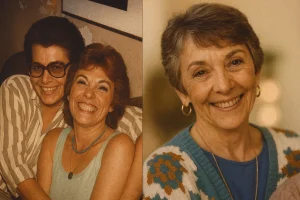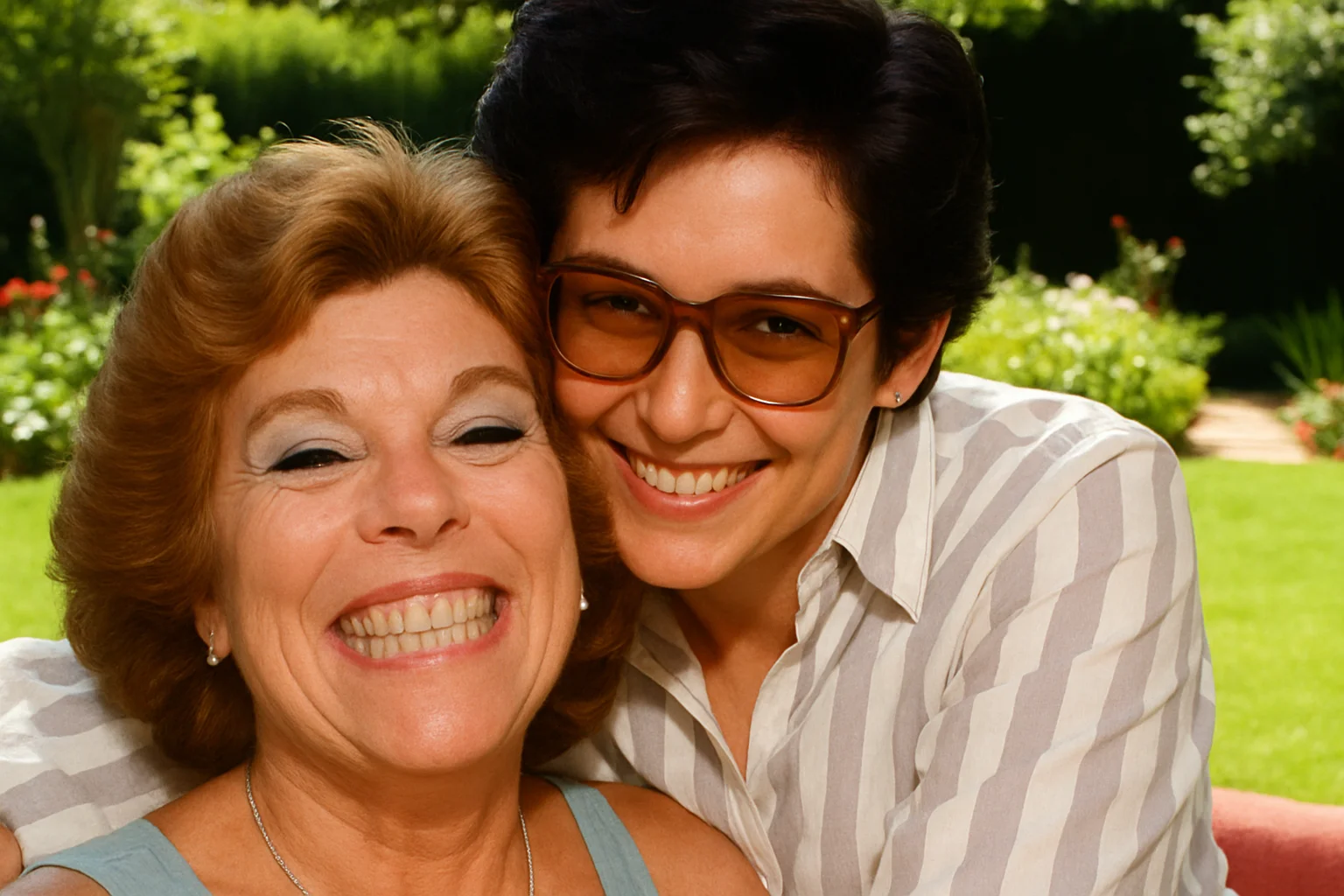In business, we often examine success through data, innovation, or market disruption. But what about the often invisible forces behind those who rise to prominence? The story of Arlene Litman is one such force, not in boardrooms or tech labs, but in the upbringing of a future star.
Best known today as the mother of actress Lisa Bonet, Arlene Litman lived a quiet but impactful life. She was not a media personality, an entrepreneur, or a public speaker. Yet, her values, resilience, and unwavering dedication provide a lens through which we can examine leadership, independence, and the foundation of success , all qualities relevant in the professional world.
This blog explores her background, challenges, and the business-relevant lessons drawn from her journey.
Who Was Arlene Litman and Why Is Her Story Significant?

Arlene Joyce Litman was born on 11 February 1940, in Pittsburgh, Pennsylvania, into a traditional Jewish family with Ashkenazi roots tracing back to Poland and Russia. Her upbringing, shaped by cultural and religious expectations, provided a disciplined and structured environment, yet it also imposed constraints, particularly around gender roles and life choices.
Rather than pursuing a life of social conformity, Arlene charted her own path. She trained as a music teacher, dedicating her career to education and the arts. While this may seem ordinary, her choice to pursue music professionally, especially during a time when women were encouraged to follow domestic roles, speaks to her quiet independence.
Though not famous herself, Arlene’s legacy lives on through her daughter, Lisa Bonet, known for her breakout roles in The Cosby Show and A Different World, and for receiving a Primetime Emmy Award nomination in 1986. Bonet’s success didn’t emerge in a vacuum, it stemmed from a childhood shaped by Arlene’s influence.
What Was Arlene Litman’s Family Background and How Did It Influence Her Life Choices?
Raised by Eli Litman and Sylvia Ellen Goldvarg, Arlene grew up in a family with strong religious and cultural tradiwtions. Her brother, Barry Litman, also grew up in this structured setting. The household was conservative, with clear expectations, particularly regarding relationships and religious observance.
However, Arlene made pivotal decisions that challenged these norms. She married Allen Bonet, an African-American opera singer, at a time when interracial marriage was not widely accepted, especially within conservative Jewish communities. The marriage put Arlene at odds with her family, creating tension and estrangement.
Despite these challenges, she chose her personal convictions over familial approval. This decision demonstrates the kind of principled risk-taking familiar to anyone navigating a career in innovation or entrepreneurship, where disruption often begins with resistance.
How Did Arlene Litman Approach Motherhood After Her Divorce?

Following her separation from Allen Bonet, Arlene was left to raise their daughter, Lisa Bonet, on her own. The couple’s marriage did not last long after Lisa’s birth in 1967, and Allen went on to remarry and have other children. Arlene, however, never remarried.
She relocated to the San Fernando Valley in California, where she worked full-time as a music teacher while raising Lisa. The absence of both family support and financial security meant that every step forward required perseverance. For professionals and business owners, this mirrors the experience of building something from the ground up with limited resources.
Despite these barriers, Arlene provided a stable and nurturing environment, balancing professional responsibilities with single parenthood, an act of long-term investment that any leader or strategist can appreciate.
In What Ways Did Arlene Litman Influence Lisa Bonet’s Career?
While Arlene did not have connections in Hollywood, she recognised Lisa’s passion and potential early on. She supported Lisa’s entry into acting when she was still a child, allowing her to participate in commercial work from the age of 11. Arlene’s role here is notable not as a stage parent but as a strategic enabler, one who removed barriers rather than adding pressure.
Lisa’s big break came when she was cast as Denise Huxtable in The Cosby Show, where she earned critical acclaim. Arlene remained behind the scenes, never seeking fame herself, but providing steady emotional and logistical support.
In times of crisis such as the 1994 Los Angeles earthquake, Arlene stepped in to help Lisa care for her daughter, Zoë Kravitz, further demonstrating her consistent commitment. For business professionals, this highlights the importance of foundational support systems, the quiet but essential roles played by those who support high performers.
What Role Did Arlene Litman’s Beliefs and Values Play in Her Decisions?

Initially raised in the Jewish faith, Arlene later identified as an atheist, reflecting a move toward personal philosophy over inherited tradition. Her transition was not abrupt but appeared to be the result of introspection and experiencing values that underscore thoughtful decision-making and self-awareness.
Her approach to parenting, work, and relationships reflects a pragmatic mindset: provide security, honour passion, and stand firm against social pressures when necessary. These are not only traits of a strong parent but of any resilient leader.
What Was the Circumstance of Arlene Litman’s Death?
Arlene Litman passed away on 3 March 1998 at the age of 58, following a battle with breast cancer. She was buried privately in Los Angeles, California, in keeping with her preference for a quiet, unpublicised life.
Her passing marked the end of a life lived with quiet dignity. Although she did not live to see the full extent of Lisa Bonet’s and Zoë Kravitz’s careers, the values she instilled continue to influence their paths.
How Can Arlene Litman’s Story Offer Lessons for Today’s Professionals?
Arlene Litman’s life offers subtle but valuable insights:
| Lesson | Relevance to Business |
| Silent Strength | Success doesn’t always shout. Quiet consistency builds foundations. |
| Resilience | Like navigating early-stage ventures, raising a child alone requires persistence and adaptability. |
| Values-Driven Decision-Making | Choosing personal conviction over external pressure is a trait shared by many visionary leaders. |
| Support Over Spotlight | Not all leadership requires visibility; sometimes, influence is best exercised behind the scenes. |
What Can Businesses and Entrepreneurs Learn from Her Legacy?

From a business perspective, Arlene’s story speaks to resilience, strategic support, and ethical independence. Entrepreneurs often talk about mentors, advisors, and networks, but sometimes the deepest influence comes from personal foundations and early life examples.
Her story is also a reminder that behind every high-achieving professional, there may be someone like Arlene: guiding, supporting, and quietly investing in their success. This applies not only to families but also to organisations and teams. Success is rarely an individual act.
Final Thoughts: Why Arlene Litman’s Legacy Matters Today
In the world of business, we often seek out big names and bold ideas. But Arlene Litman’s story proves that lasting influence doesn’t always come from the front lines. Her choices from leaving a restrictive environment to raising her daughter alone, from supporting Lisa’s ambitions to building a quiet but strong life, represent leadership in its truest form.
As professionals, we can look to stories like hers to reframe how we define influence and success. It’s not always about fame, visibility, or profit margins. Sometimes, it’s about the quiet investment in others that lays the groundwork for something much greater.
FAQs About Arlene Litman
Was Arlene Litman connected to the entertainment industry?
Only through her daughter, Lisa Bonet. Arlene herself worked as a music teacher and stayed out of the public spotlight.
How did Arlene Litman influence Lisa Bonet’s career?
Through emotional support, early encouragement, and stability, Arlene enabled Lisa to pursue acting without pressure.
What made Arlene Litman’s parenting style unique?
She balanced independence with support, offering guidance while allowing Lisa to follow her passions.
What challenges did Arlene face as a single mother?
She received minimal support from family or her former spouse and had to provide both financially and emotionally on her own.
How can her story inspire professionals today?
Her resilience, values-based decisions, and quiet leadership offer lessons in long-term thinking and impactful support.
Was Arlene Litman religious?
She was raised Jewish but later became an atheist, valuing personal freedom and critical thinking.
What is Arlene Litman’s legacy?
Her legacy lives through her daughter Lisa Bonet and granddaughter Zoë Kravitz, both of whom exemplify independence and creativity values Arlene championed.




